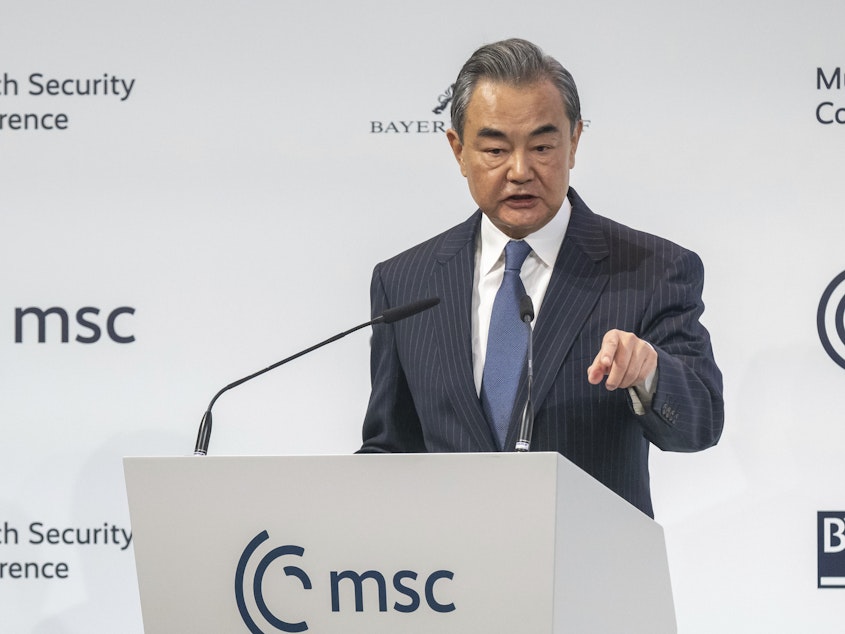China calls for a cease-fire and peace talks between Russia and Ukraine

BEIJING — China is calling for a cease-fire in Ukraine and for peace talks as soon as possible in a much-anticipated position paper released on the first anniversary of Russia's invasion.
As Russia's war in Ukraine enters its second year, Beijing is pushing harder for a negotiated end to the war. It has repeatedly suggested it would be willing to broker any cease-fire negotiations, a proposal Ukrainians are wary of because of China's close ties with Moscow.
"Dialogue and negotiation are the only viable solution to the Ukraine crisis," the 12-point position paper stated. "All efforts conducive to the peaceful settlement of the crisis must be encouraged and supported."
This week, Beijing also sent its top diplomat, Wang Yi, to Moscow where he met with Russian President Vladimir Putin among other officials and reiterated the only way to resolve the crisis was through diplomatic negotiation.
"The China-Russia relationship has stood the test of the drastic changes in the world landscape and become mature and tenacious," Wang told Putin, according to a Chinese Foreign Ministry readout from the meeting.
Sponsored
China has drawn politically closer to Russia since the invasion, signing a "no limits" partnership agreement with Moscow in February 2022, just days before the start of the invasion.
There is also talk of a visit to Moscow in the coming months by Chinese leader Xi Jinping, who may have some influence with Russian President Vladimir Putin. Putin sent his "sincere greetings" to Xi this week and said he was looking forward to welcoming "my friend" to Moscow, referring to the Chinese leader in his meeting with Wang this week.
Yet China is also wary of alienating European countries further with its notable lack of condemnation of Russia's war. In the position paper published Friday, China tried to tread a fine line.
"There isn't much leverage involved. The document lays out broad, general principles, but no real reason why you might want to cease and desist, right? There's no big appeal that you're getting something. There's no big cost if you don't comply," said Ian Chong, associate professor of political science at National University of Singapore.
In the paper, Beijing pushed for talks as soon as possible and said nuclear weapons were off-limits — an idea Russia seems less committed to. Just this week Putin said he was suspending a nuclear arms control treaty with Washington.
Sponsored
But the Chinese position paper also took several digs at the West for its approach to the war. It says unilateral sanctions only create more problems, and it called for the abandonment of a "cold war mentality."
On Friday, Wang Wenbin, a Chinese foreign ministry spokesperson, tried to strike a balance between Russia and Europe, but suggested Western allies and especially the U.S. were at fault for the conflict: "NATO should reflect deeply and stop trying to mess up Asia and the rest of the world after messing up Europe," referring to the bloc's recent interest and focus on the "Indo-Pacific."
Aowen Cao contributed research from Beijing. [Copyright 2023 NPR]
